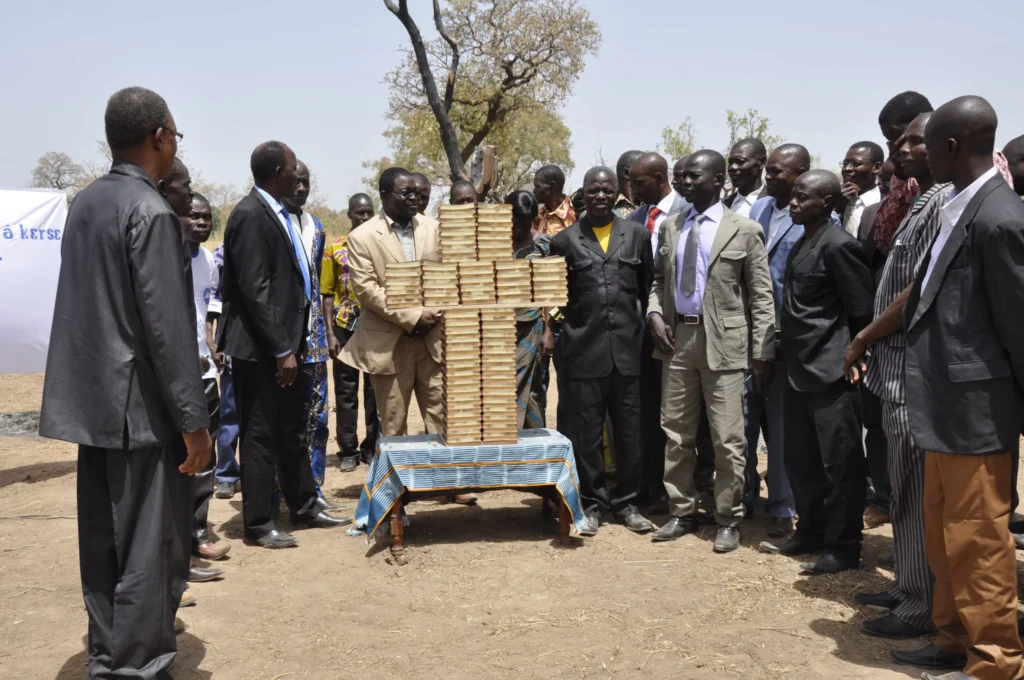The Yewase* people of Burkina Faso discover the God who makes himself knowable
“Now, how are we going to translate the name of God?” asked Pastor Seko.*
When the Yewase New Testament was published in 2016, the word used for God was Yékírí, which referred to God as the author of everything that happens to us. But on this day, the translation of the Old Testament was about to begin. On this day, the translators had to decide on how to translate the Hebrew name of God: Yahweh.

When each team member was settled around the big desk, laptops ready, Pastor Seko began with this weighty question.
Most Yewase people followed an African traditional religion. They believed in one God, but that He was far away, unreachable, with layers of spiritual and human hierarchy between Him and them. Each person’s responsibility was to pray to their ancestors and perform the correct burial rites. How could they even dream of knowing the true God for themselves?
Pastor Seko knew that the word they chose to translate Yahweh would be important. It could influence whether his people saw God as distant or close; knowable or unreachable; for them or only for other people groups.
The right word at the right time
Rosemary Pritchard, from the UK, was the newest member of the team. A former Methodist minister, she loved languages and was well versed in Greek and Hebrew. She had even spent a year researching West African translations of the name of God.
Pastor Seko’s first question to Rosemary, on her very first day working with the team, was about the very subject on which she had written her dissertation – an incredible confirmation that she was where God wanted her.
So how would they translate Yahweh? The answer actually came quite quickly. Rosemary is still amazed when she remembers.
“They [already] had a name,” she says, “an obscure name for God in their language: Yáawérí.”
This name was strikingly similar to the original Hebrew—but did it have the right meaning? It wasn’t used very much in everyday conversation. Would Yewase speakers who followed the traditional religion understand it? Early on, the team translated the story of Joseph. When they had finished, it was time to find out by testing it with members of their community.
Testing the translation
Since the villagers were only free after they had finished their work in the fields, everyone gathered at night. Everyone was attentive as the chapters of Genesis were read. The younger community members were fascinated—but deferred to their elders as one team member began asking questions.
Finally, he turned to one of the men and asked, “Who is Yáawérí?”
The man hesitated, thinking back to when he had heard the name before. “That’s the name of the true God . . . isn’t it?”
Pastor Seko, never a demonstrative man, was quietly satisfied. This was exactly what they had hoped for. What might these stories from the Old Testament mean to this man, and to all of the Yewase people, now? How would it transform their understanding of the gospel – the story not of a God who is far away, but of the true God with us?
The Yewase word had been there all along, but it took this team of translators to release its potential—to show that we can know God by name, and have a relationship with Him.
*names changed for security reasons
Adapted from an article at wycliffe.org.uk

